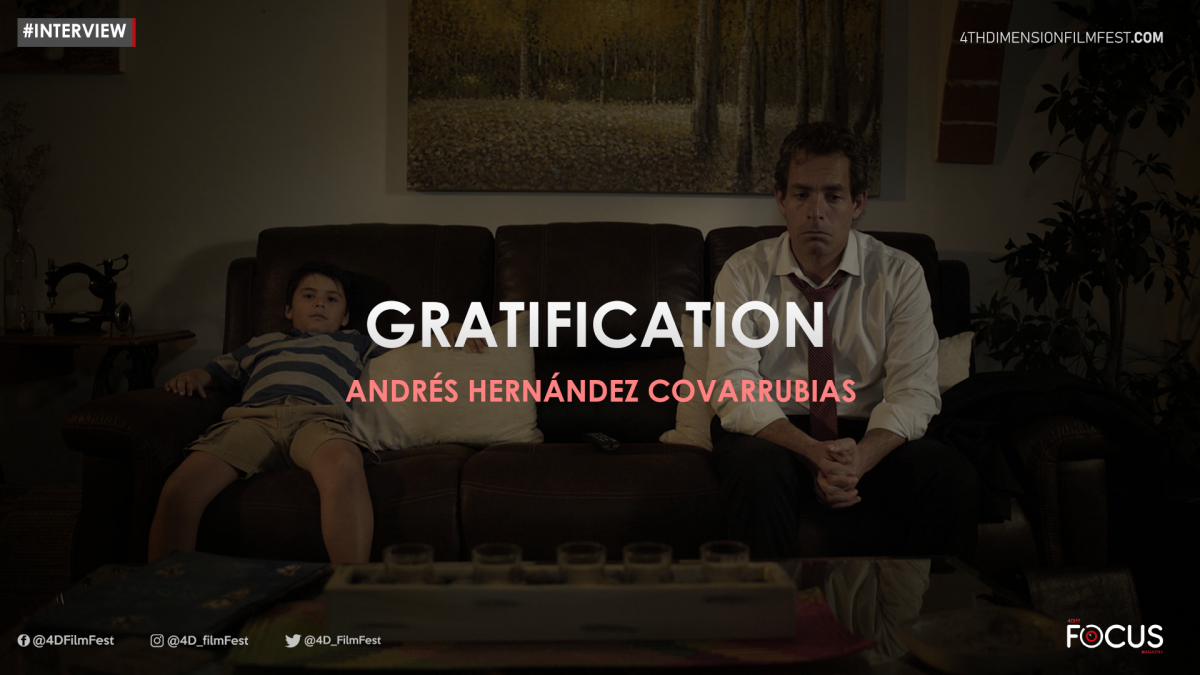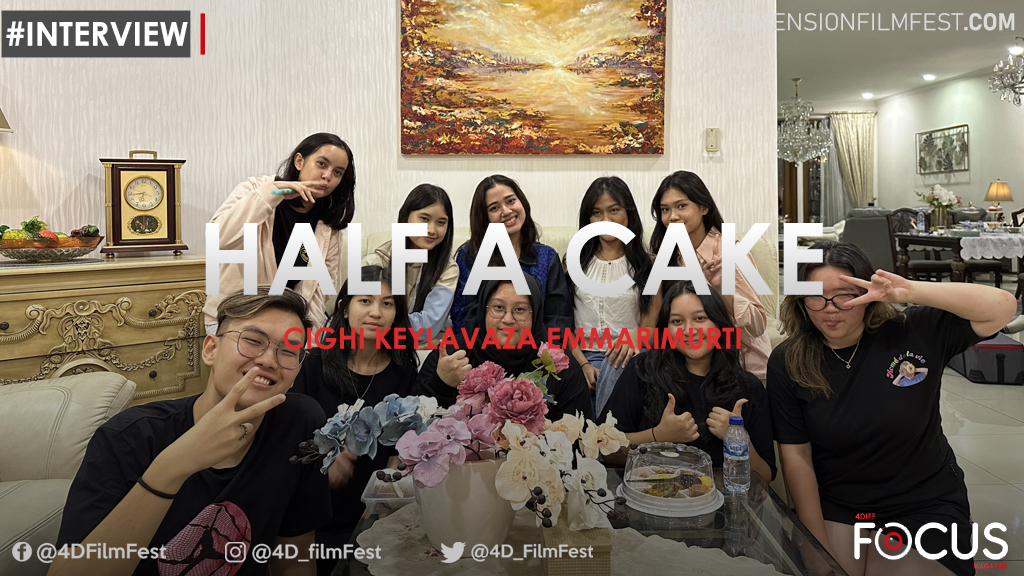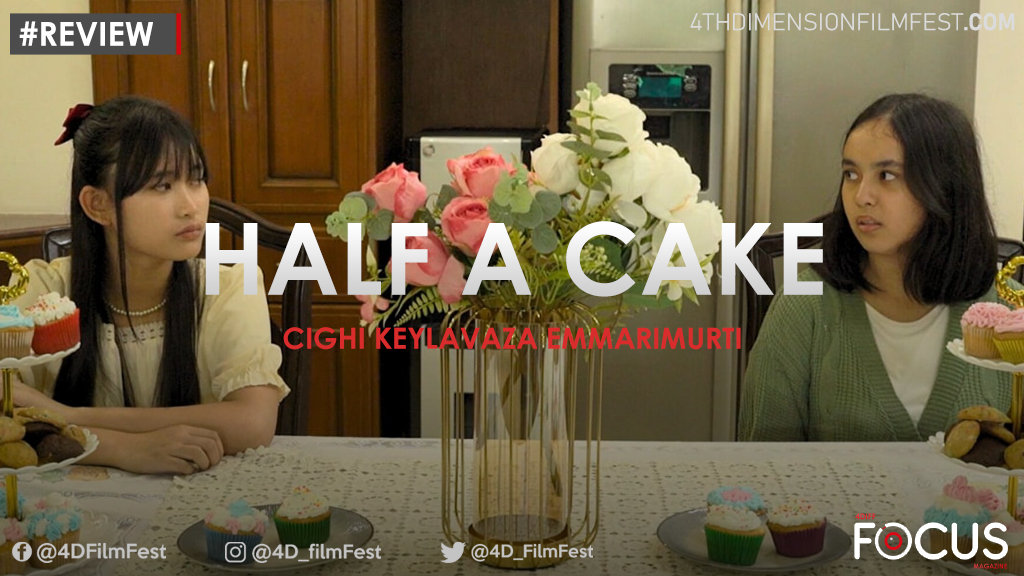Andrés Hernández Covarrubias was born in Mexico in 1993.He graduated from ‘Escuela Veracruzana de Cine Luis Buñuel’ (EVCLB). He completed a diploma in editing at the International Film and TV School (EICTV) in Cuba and a script workshop at the Film Training Center (CCC) in Mexico City. Jury for the Mezcal Award at the 31st Guadalajara International Film Festival. Jury for the youth award at the Bogotá International Film Festival (2018). Member of the curatorial team of the independent film theatre “Cinema Nahual”. His projects have been selected in national and international film festivals. His most recent short film “Gratification” has been selected and awarded in more than 30 festivals.
Hello Andrés, welcome to Focus! It is great to have you here with us today!
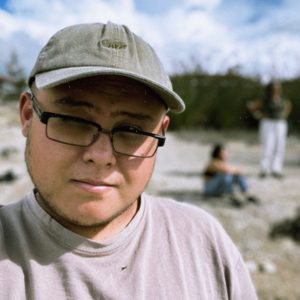
How did you craft the story? What inspired you to come up with the story?
The story was inspired by aspects close to my daily life (past and present), and invented elements to generate fiction without filters. The style of my narration is bathed in the “Dirty Realism” of the American writer Raymond Carver: short and direct narratives about middle-class characters who face trivial situations but behind them a greater conflict hides.
How would you define “Gratification”?
For me, this word has a double-edged meaning. It is a simple act of love to achieve stability and reconciliation, but at the same time it is a utopia, something that anyone would like to achieve, but its execution is far from the reality due to its complexity or impossibility of putting it into practice.
Gratification is something very existential… trivial but complex. For me, that is the heart of this short film.
As you have already stated that the story of this film has a personal background. Was it tough for you to detach yourself from the story while directing it? How did you look at this matter?
I always get a lot of inspiration from everyday life. My personal ideas are always clashing with my cinematographic or literary influences. So, I always seek to alter the reality that I perceive and make it accessible or interesting to others. I think that is the most difficult task of a director, to give value to something that can be unnoticed and give it a new meaning, something more powerful.
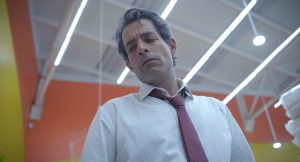
Alfonso is a character with many layers and his story makes him closer to the audience. But it seems that he is also going round and round on his path. Tell us how you perceive his character.
I think he is a very Kafkaesque character. On the outside, it may be very simple, but if you look deeper, you can find an interesting and much more complex depth. For me, Alfonso represents complexity dressed in simplicity. I think he is a very untimely character, blinded by his aspirations, absent-minded and unable to realize that a small action (an act of sincere caring) is more impactful than an extraordinary action full of flourishes.
What are the things that make a relationship work?
I think we live in times where the expression of affection and love is reduced to a cold and materialistic act. Now everything is an easy way out. There is false and commercial empowerment that takes over people’s lives.
I think that with the emergence of new forms of communication they make people make more plans to make a good impression on others and they forget about sincere motivations. Now everything is based on consumerism and populism. I believe that a good relationship, both with family and with friends and professionally, must be based on real acts, without many pretensions.
Jorge Lan was outstanding as the conflicted father. But I would say that Juan Pablo Monterrubio actually caught my attention more. His Matías was mature and way more focused than the adults in the world. How did you come up with these character traits in him?
My intention for both characters is that they are complex and contradictory to their external image: the adult is confused and unstable, and the child is more focused on his way of acting.
In addition, I have always been interested in the child’s perspective. I think they perceive things in a raw and honest way… without filters. Matías is a fundamental piece in the story, because, like Alfonso, he is a character that has many internal conflicts that cannot be seen with the naked eye, I wanted him to be a kind of mirror character of the father and in some way make a metaphor about how the adult world complicates things and that sometimes a child’s perspective is unfiltered and somehow clearer.
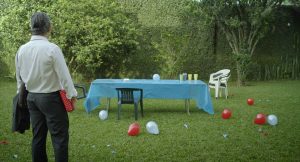
Andrés, it is evident that you have a knack for storytelling and you definitely know how to keep your audience hooked to the content! Tell us what makes you want to tell a story?
I love how contradictory everyday life is. It is something that I find very beautiful, but also that fills me with fear. I have always been struck by the great meanings that are hidden behind small or trivial things. I also like to put my characters in surreal or absurd situations. I am not so interested in the grandiose elements, I am interested in the imperceptible and internal things of the human psyche, I think they have a greater meaning than the untimely actions that often appear on the screen.
As a director, what kind of tales do you wish to present in front of your audience?
I am interested in telling stories for an active public that detects various elements, not only the performances, or the dialogues. I think that gives an opportunity to praise the little things that happen in life.
As a filmmaker, I must take advantage of the hidden things approach of everyday life to seek and provoke anxiety and empathy at the same time. Also, I like not to be so deterministic in my endings. I am interested in becoming a clear guide for the audience. Show them the beginning, the middle and the end… but the experience that each one interpreted corresponds only to them.
Andrés, do you have a set goal? Where do you see yourself after ten years?
I see myself still creating films, but with greater clarity. With a more defined style and with greater security due to the deception that the industry can do. I also see myself with more knowledge and am willing to help the next generation who wants to tell a story on screen.
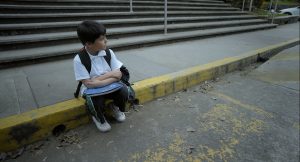
What are you planning next?
I am preparing for my next two projects. A short film entitled “Old Well”, a family story that little by little becomes a criminal tale, the screenplay is hanging around in some festivals and production is expected to start in 2023. In addition, I am developing the script for my first feature film, a young adult coming-of-age story that I would describe as a tightrope between realism and surrealism.
It was nice talking to you Andrés! All the best for your future ventures!
Thanks for your space and for taking the time to talk with me.


